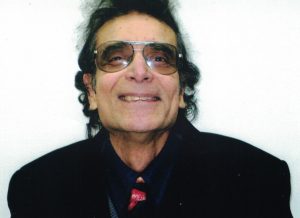GEORGE WALL – THE LION THAT ROARED – By Bernard VanCuylenburg
A few months ago I wrote an article titled “David and Goliath” which featured a young English tea planter Mark Anthony Bracegirdle, who rocked the colonial establishment when he sided with the workers and the unions, by demanding better living conditions for the estate labourers on the plantations. His colonial masters were dumbfounded and furious to find that it was “one of their own” who by the courage of his convictions, proved to be the proverbial thorn in their side.
This story is about another hero George Wall – an Englishman – a philanthropist who fought for the rights of the Ceylonese in the days of colonial rule almost a hundred years before Bracegirdle. I wonder how many will remember the Town Hall end of the De Soysa Circus in Slave Island, Colombo. There was an ornate fountain here with an inscription in mosaic which read “GEORGE WALL – PHILANTHROPIST – 1820 – 1894. I dont know if this fountain still stands and I came across it during a ramble in the gardens over fifty years ago. It was not working then and if it is still there, I am sure it is not working now !, It is a tribute to a giant among men, and will perhaps part the veil of time and evoke a host of memories particularly to Sri Lankans of an older generation, who reminisce on life in the land we once called home.
George Wall had many strings to his bow and was a luminary in his own right. Using more romantic prose, it could be said that in an academic sense he wore a coat of many colours.
Apart from being a salt of the earth human being who never lost the common touch, he was a coffee planter, botanist, astronomer, politician,and a merchant. Above all this he was a great humanitarian. He came to Ceylon in 1846 and became Acting Manager of The Ceylon Plantations Company which then was in Kandy. Many years later this Company moved to Nuwaraeliya and managed their estates from there until the nationalisation of the plantations. He inaugurated The Planter’s Association and held the position of Chairman for twenty eight years though not consecutively. While Acting Manager of the company in Kandy, he resided in a building which today is the Hotel Suisse. He also owned a home in Nuwaraeliya.
He was a member of the Chamber of Commerce and the Legislative Council and resigned from both. But it is his stand for the rights of the Ceylonese working class and advancing unpopular reforms in their favour, for which he is most remembered. In later years he became the editor of “The Ceylon Independent” one of the most popular journals of the time, and this was his platform to voice his opinions by one of the strongest weapons at his command – his pen ! He became a prolific writer and did not win any sympathy from his English colonial masters by his scathing editorials. Conversely, the working class looked upon him as the greatest of all Englishmen in the islands public life. Like a lion that roared, George Wall used his pen to maximum effect in order to drive fear into the ruling class of the colonial establishment.
As a businessman he won and lost fortunes but it is sad to record that fate did not treat him kindly in the end. Four years after his arrival in the island, he opened his own firm in Colombo, George Wall & Company. It was one of the pioneer European firms in Ceylon which lasted till 1879 and collapsed in the coffee crash. This collapse spelled the loss of George Wall’s fortune. This champion of the working class returned to England in 1894 and died a few days after his arrival in a Home in London. It is on record that this man of noble spirit who once paid three hundred English pounds for a single lens for his telescope died nearly bankrupt.
Men of his calibre were seldom seen again and the lion’s roar was silenced, until Mark Bracegirdle almost eighty years later arrived on the scene to rekindle the flame of fairplay and justice on behalf of the underdog.
|

Bernard VanCuylenburg








No Comments